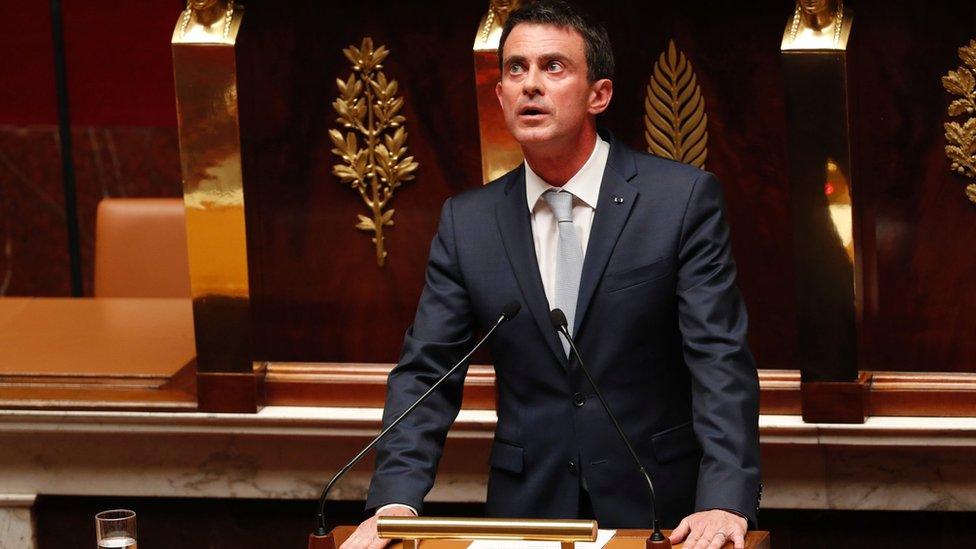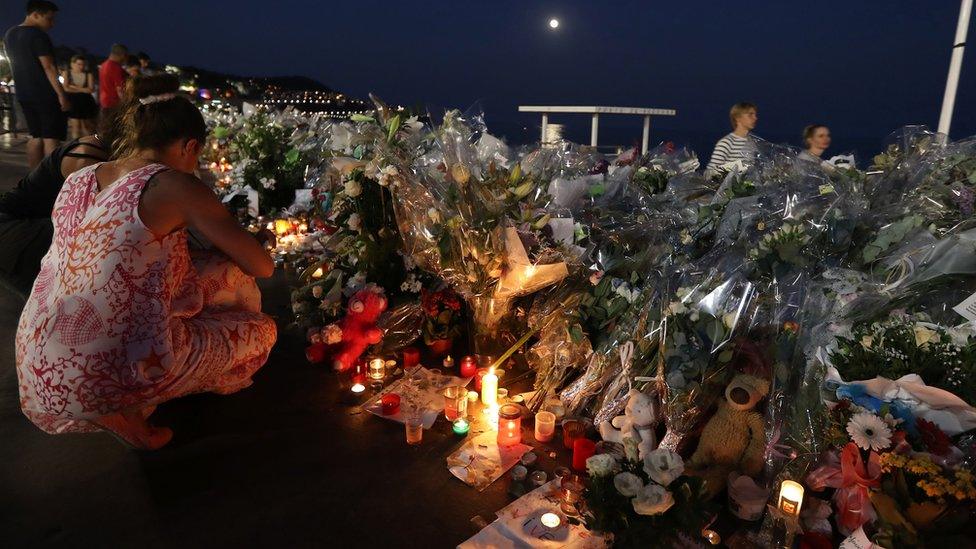France to extend state of emergency for six months
- Published

Prime Minister Manuel Valls said France had to "learn to live with this menace"
France's National Assembly has voted to extend the state of emergency for six months.
The move follows last week's attack in Nice in which 84 people were killed and scores injured when a lorry was driven into crowds.
The state of emergency was brought in after terror attacks in Paris in November that left 130 people dead.
Prime Minister Manuel Valls said France must expect more deadly attacks despite precautions taken by his government.
Speaking at the debate in the National Assembly, he said France would have to learn to live with the threat.
"Even if these words are hard to say, it's my duty to do so," he said.
"There will be other attacks and there will be other innocent people killed. We must not become accustomed, we must never become accustomed, to the horror, but we must learn to live with this menace."
The extension agreed in the early hours of Wednesday would take the state of emergency until the end of January 2017. It is the fourth extension France's parliament has proposed and the move must be approved by the Senate.
The emergency measures give the police extra powers to carry out searches and to place people under house arrest.

Makeshift memorials have been set up along the Promenade des Anglais in Nice
Earlier this month, President Francois Hollande said he did not intend to extend the state of emergency beyond 26 July.
The last extension was to cover the Euro 2016 football tournament and the end of the Tour de France cycling race.
A recent commission of inquiry found that the state of emergency was only having a "limited impact" on improving security.
It questioned the deployment of between 6,000 and 7,000 soldiers to protect schools, synagogues, department stores and other sensitive sites.